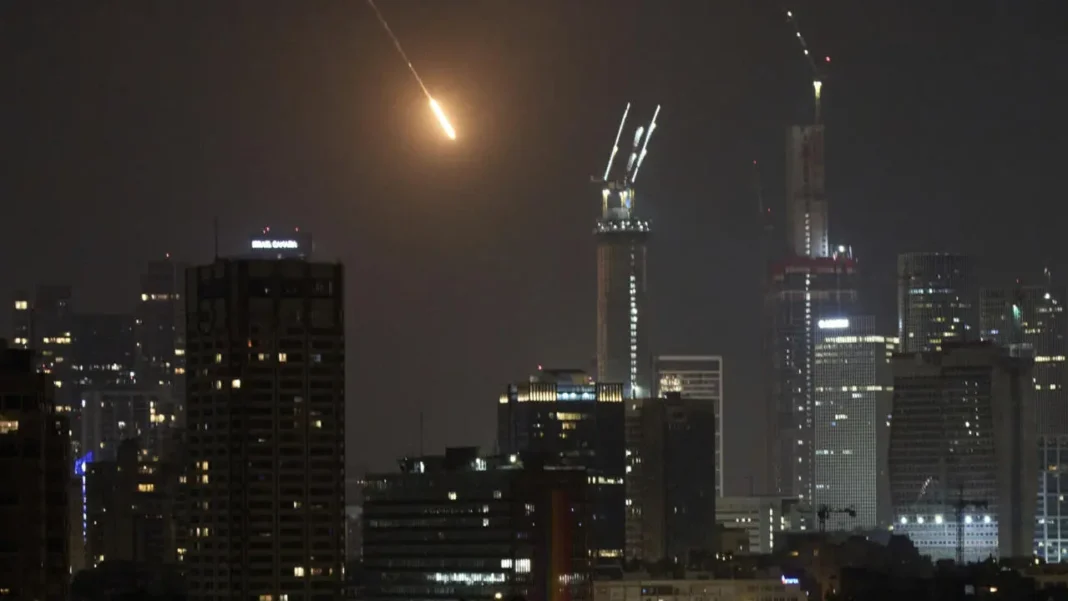A deepening conflict between Israel and Iran has ignited fresh international concern, with world leaders warning that the region may be nearing a wider war.
This began as Israel launched a large-scale air assault on Iranian territory on Friday, targeting nuclear and military facilities.
Among the sites hit were nuclear facilities in Natanz, Fordo, and Isfahan, as well as military command centres.
The attacks, which came in the early hours of Friday, a traditional day of rest in Iran, reportedly killed high-ranking Iranian officials and nuclear scientists.
In response to this, Iran described the strikes as a “declaration of war” and launched retaliatory missile attacks on Israeli cities, including Tel Aviv and the Gush Dan region.
Dozens were injured, and at least one person died from injuries sustained during the strikes, according to Israeli media.
Key Developments:
Strikes on Nuclear Infrastructure:
Israel’s assault included repeated missile strikes on an underground enrichment site in Natanz. Iran reported limited damage to its Fordo and Isfahan sites, while the UN’s nuclear watchdog confirmed that radiation levels outside the affected areas remained stable.
High-Level Casualties:
Senior Iranian officials confirmed the deaths of several top military figures, including Revolutionary Guards commander Hossein Salami, armed forces chief Mohammad Bagheri, and aerospace commander Amirali Hajizadeh, a key figure in Iran’s ballistic missile program.
Iran’s Counterattack:
Iran launched over 100 drones and ballistic missiles at Israel in retaliation. Israeli authorities said most drones were intercepted before reaching their targets.
However, missile strikes injured dozens, and air raid sirens were sounded repeatedly across central Israel.
International Airspace Closures:
Airspace was shut over Iran, Iraq, Jordan, Syria, and Israel. Airlines canceled numerous flights amid security concerns.
Internet Blackouts and Security Lockdown:
Iranian authorities imposed internet restrictions across the country, citing national security concerns. Officials said services would resume when “normalcy returns.”
UN and Global Reactions:
The UN Security Council convened an emergency meeting. UN Secretary-General António Guterres urged both countries to pull back and pursue diplomacy.
The International Atomic Energy Agency (IAEA) also announced plans for an emergency session on Monday.
US Response:
While the United States was reportedly informed of the Israeli operation in advance, President Donald Trump denied direct involvement.
However, he issued a stern warning to Iran, saying future Israeli actions “could be even more brutal” and encouraged Tehran to de-escalate.
Nuclear Concerns:
Iran has insisted its nuclear program is peaceful but continues to enrich uranium at 60%, well above the levels allowed under the defunct 2015 nuclear deal.
Planned nuclear talks scheduled for this weekend in Oman have been shelved due to the escalating violence.
What’s Next?
With over 200 targets reportedly struck by Israel and retaliatory fire ongoing, concerns are growing that other actors in the region could be drawn into the conflict.
Analysts also warn of economic fallout, especially if tensions threaten oil shipments through the Strait of Hormuz, a key route for global crude oil supplies.
Global leaders continue to urge caution, but the situation remains fluid, with both Israel and Iran showing no signs of backing down.
What we know about Israel-Iran conflict, rising tensions, regional fears


